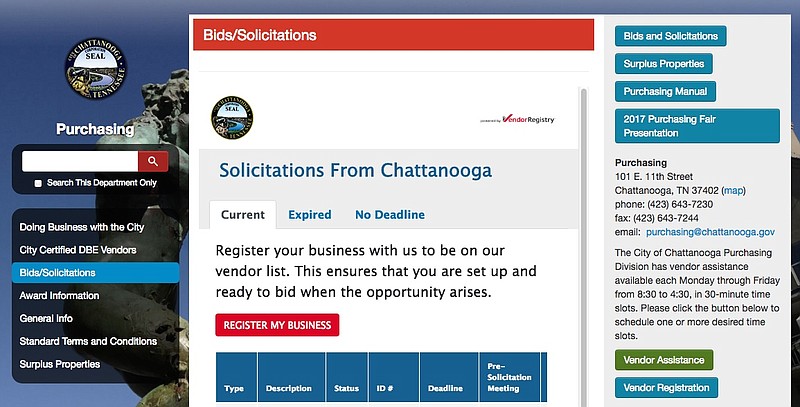The consultants selected to study whether small and minority-owned businesses are able to compete for city business briefed Chattanooga council members Tuesday on how they will do the work if they get the contract.
The council will vote next week whether to hire Atlanta-based Griffin & Strong, a law and public policy firm specializing in disparity research and contract compliance, said Michele Clark-Jenkins, the project manager.
The $175,000 study will evaluate the city's policies and data on purchasing and procedures to see whether the full range of business people who pay city taxes have equal opportunity to bid on and land city business.
Council members have talked at length in their strategic planning sessions about the city's purchasing procedures and small and minority businesses' access to city contracts.
Smaller businesses may face financial barriers that impede their ability to be bonded and insured, to accumulate capital and to comply with dizzyingly complicated bidding and contract rules.
Plus, Jenkins said, there's a big factor of "we've always done it this way" with longtime contractors.
"Having diversity in procurement is key because everybody is paying taxes," she said.
If the study does detect disparate treatment, she added, "the community members, whatever we find in our study, they already know. The important thing is that the city is prepared to say, 'What are we going to do about it?'"
Excluded businesses potentially could make a legal case if the city's policies and performance lead to what's known as a legal inference of discrimination, attorney and team member David Maher told council members. Griffin & Strong, with 26 years in the business, has never had one of its disparity prescriptions successfully challenged in court, he said.
That doesn't mean that, if the researchers find unequal treatment, the remedies necessarily will be race- or gender-based, Jenkins said.
For instance, she said, a Georgia study of transportation contracts showed two types: Building projects, averaging $4.5 million, and maintenance contracts for an average of $200,000 to $300,000.
The researchers found big firms that scooped up the major contracts also nabbed most of the smaller ones, cutting the small players out.
The remedy was to stop allowing the big players to bid on the small contracts, letting the little guys have a chance, Jenkins said, and "everybody said yay!"
Council members asked several questions about how the study will be conducted. Tanesha Jones, data analyst, said the firm will keep the council informed at every step.
The process will take about a year and will include a lot of public input, including community meetings and surveys, along with a deep dive into the city's data.
Council members Russell Gilbert and Anthony Byrd both expressed support for the study.
"I feel like it's Christmas," Byrd said.
Contact staff writer Judy Walton at jwalton@timesfreepress.com or 423-757-6416.
